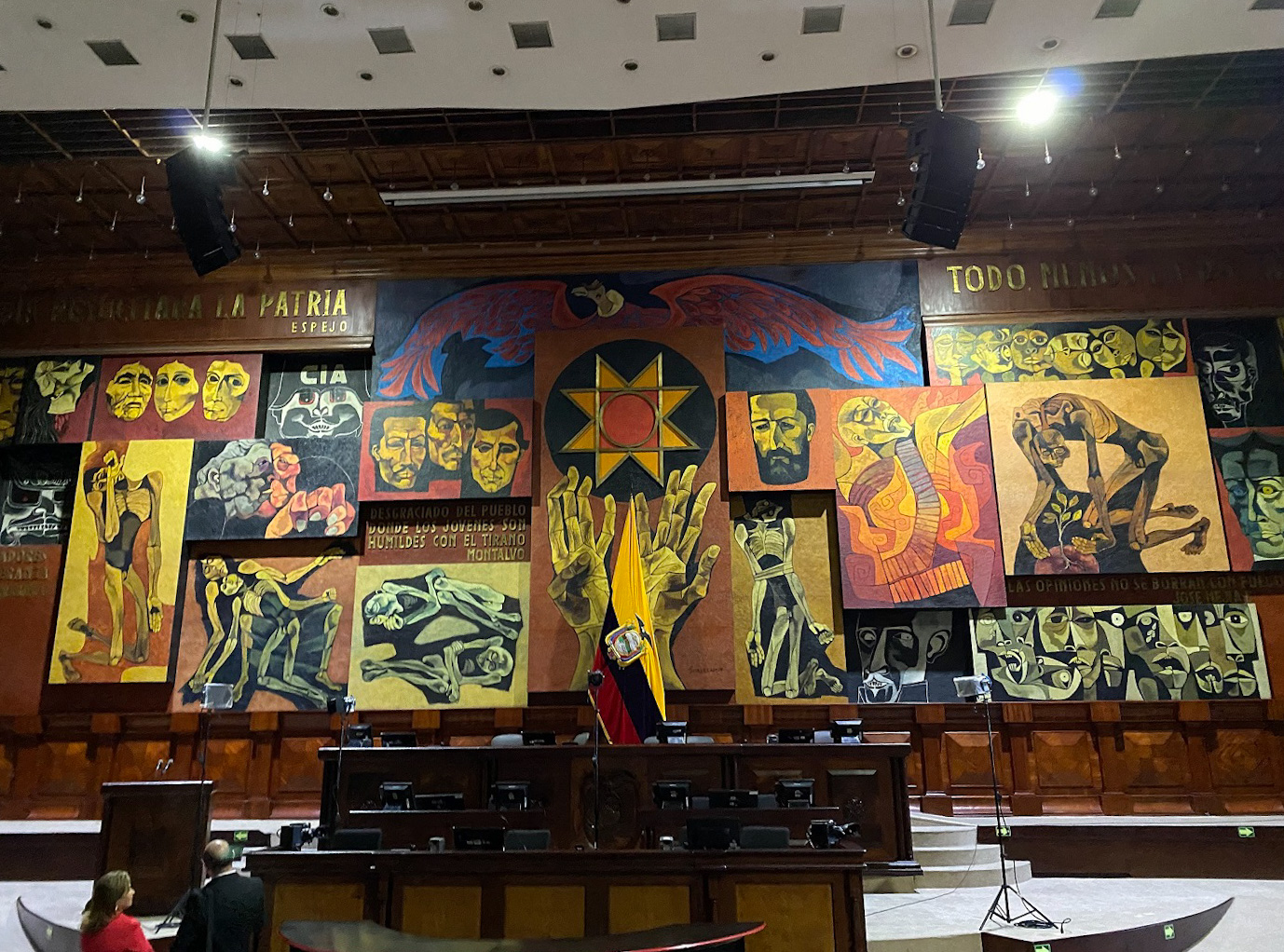In every country, building governments that are reflective of and trusted by citizens starts with good legislation. But responding to the public’s needs is easier said than done. Having the will to pass citizen-centric legislation is key, but it means little if there is no mechanism for testing the effectiveness of laws and informing the creation of new ones.
In this blog, we examine the case of Ecuador – where the National Assembly (NA) is committed to forming a government that focuses on its citizens. With support from the International Republican Institute (IRI), Ecuador’s NA is accomplishing its goals by developing the monitoring, evaluation, and learning (MEL) tools needed to test and design legislature. The new legislature, which will be sworn in this week, will have a key opportunity to strengthen the country’s democracy by putting forth more effective and citizen-driven laws.
In 2017, Ecuadoreans took to the polls in an election dominated by promises to take seriously the concerns of everyday citizens. Once in office, however, the newly elected NA members met serious challenges in meeting their campaign promises. Namely, they had limited access to the high-quality research needed to inform new laws and track the effectiveness of existing ones. For example, without a mechanism to improve the 2018 Law to Prevent and Eradicate Violence Against Women, the legislation continues to meet obstacles in its implementation.
Increasingly, evidence suggests that good governance depends on monitoring, evaluation, and learning. But despite the importance of MEL techniques, only a handful of Latin American and Caribbean (LAC) countries have incorporated them into public administration. The result? Governments that fail to represent the people. Struggling to respond to citizen demands, Ecuador’s government and civil society knew they needed a change in 2017 and looked to IRI for help strengthening their MEL practices.
Responding to the call, IRI partnered with the NA to introduce a new System for Monitoring and Evaluation of Laws or Sistema de Seguimiento y Evaluación de las Leyes (SISEL). Based on MEL best practices, SISEL offers a framework that allows NA members to assess the merit of proposed legislation and its impact after adoption. Along with creating a MEL system within Ecuador’s NA, IRI also provided members with technical training to elevate SISEL as a mechanism for evaluating laws through measurable objectives and indicators.
With the swearing in of Ecuador’s new NA this week, elected officials are presented with the opportunity to uphold their commitment to evidence-based, transparent, and citizen-focused governance. As the government continues to navigate the use of MEL in Ecuador, IRI will remain steadfast in its support for the country’s elected officials. What’s more, we are committed to expanding our work to foster good governance globally through evidence-based approaches.
Top